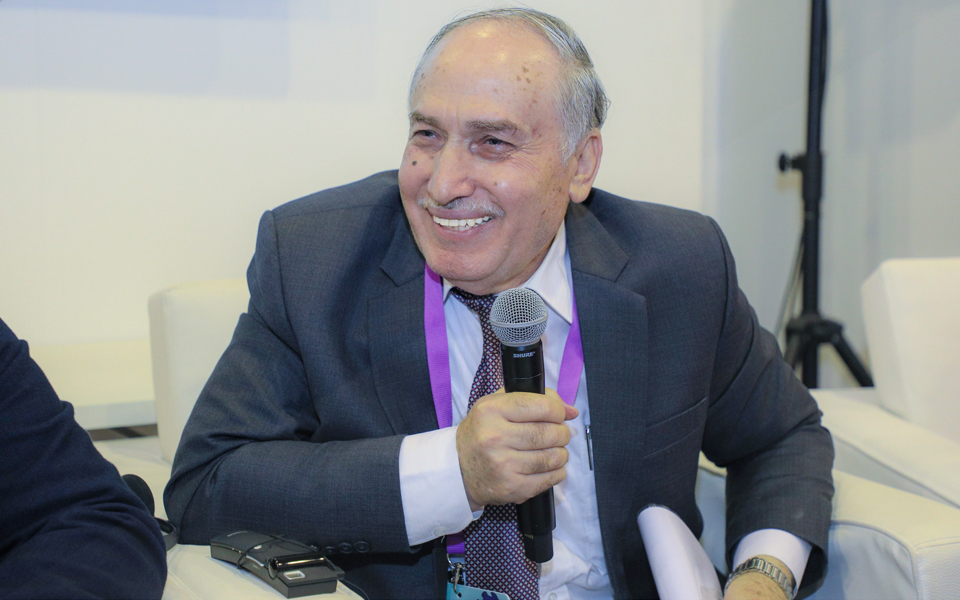Jafar Al Oqaili
Dealing with heritage in literary text remains a strongly-debated issue in the cultural arena. This is only further complicated when being viewed within the context of children’s literature.
Literature is not a form of indoctrination, memorization or just filling of information. The written words cannot be considered a literature in the absence of excitement, fun and the meaningful message that can be passed on to readers through the text.
This topic was addressed by Dr. Haitham Al Khawaja, Syrian researcher, writer, academic and theatre critic, during a session held as part of the Cultural Programme at the Sharjah Children’s Reading Festival 2018 (SCRF). During the session, Al Khawaja talked about his perceptions and insights into how heritage is used in children’s literature.
Al Khawaja demonstrates that history provides a clear and precise image of the world and provides us with lessons. It also embodies the connection between man and his ancestors and past. He believes “history is one of indispensable human sciences because it is the memory, record and narratives of what happened in the past.”
He underlines the importance of history to children as it helps enhance identity and provides bright examples that give them the ability to move towards the future. Harnessing history and drawing lessons from it needs knowledge, awareness and expertise. It also requires honesty, credibility and maturity.
Al Khawaja illustrates that utilization of history in children’s literature means evoking specific periods of history, whether through events and situations, or by talking about personalities, or through stories, parables and anecdotes, among others.
Although sources of heritage are diverse and many Al Khawaja believes that the problem does not lie in sources, but in the nature and way of selecting sources. Some thinks it is an easy job as long as materials are available, but this is a misplaced belief because the difficulty lies in the way of selection.
Therefore, the person, who is supposed to be doing this job, must be aware of history and an expert in writing for children. He must also be able to sort between what a child should know and care about, and what we need to keep him away from.
Al Khawaja presents examples of rich sources of information, inspiring biographies of heroes and stories that inspire children to cherish their past, such as stories of the Holy Quran, Prophets and God’s messengers, as well as stories of the angels, prophetic hadiths, Islamic conquests, and travel stories and tales of heroes.
He indicates that using heritage in children’s literature leads to realisation of numerous cultural, knowledgeable and national goals, linking the past, present and the future. Harnessing heritage also makes children realise their rich history-be proud of and draw lessons from it.
He stressed the importance of adopting an interesting and enjoyable style in using heritage in children’s literature without compromising their commitment to the positive goal of this literature that contributes to building a child’s personality and strengthening their intellect and culture.
He explains that this can be achieved through inspiration or setting and quote or through subpoena or embedding. “The more children’s book writers work on form and content in their literary work, the more powerful and influential creative literary work they will produce.”
Terms of utilising heritage in children’s literature
Al Khawaja said these conditions can be summarised in communicating historical information commensurate with children’s perceptions and consistent with their mental, emotional and linguistic maturity. Other conditions include stimulating imagination, deepening belonging to humanity, focusing on instilling moral values, advancing their aesthetic taste, and emphasising on linking the past, present and the future.
Sharing his vision about utilising heritage in children’s literature, Al Khawaja said the conscious writer, who believes in the importance of passing heritage onto future generations, is the one who enlightens heritage and avoids codification and documentation because it is none of his duties. He is required to highlight the positive values and avoids marginalized, contradictory and useless materials, with a focus on spiritual, moral and informative values and facts while staying away from magical and mythical solutions.
Al Khawaja expressed his regret because children’s literature in the Arab world has turned into a ‘commodity’ that does not care about the building and development of a child’s personality and intellect. There are many of history-based stories that distort heritage and contain mistakes and misled thoughts.
In conclusion, Al Khawaja said it is extremely important for children to know their history, and this requires concerted efforts by the family and the educational institution as well as children’s book publishers and writers-who should together play a complementary role to nurture and build a generation-proud of its national identity and is fully aware of the importance of its past, present and the need to prepare for the future.







